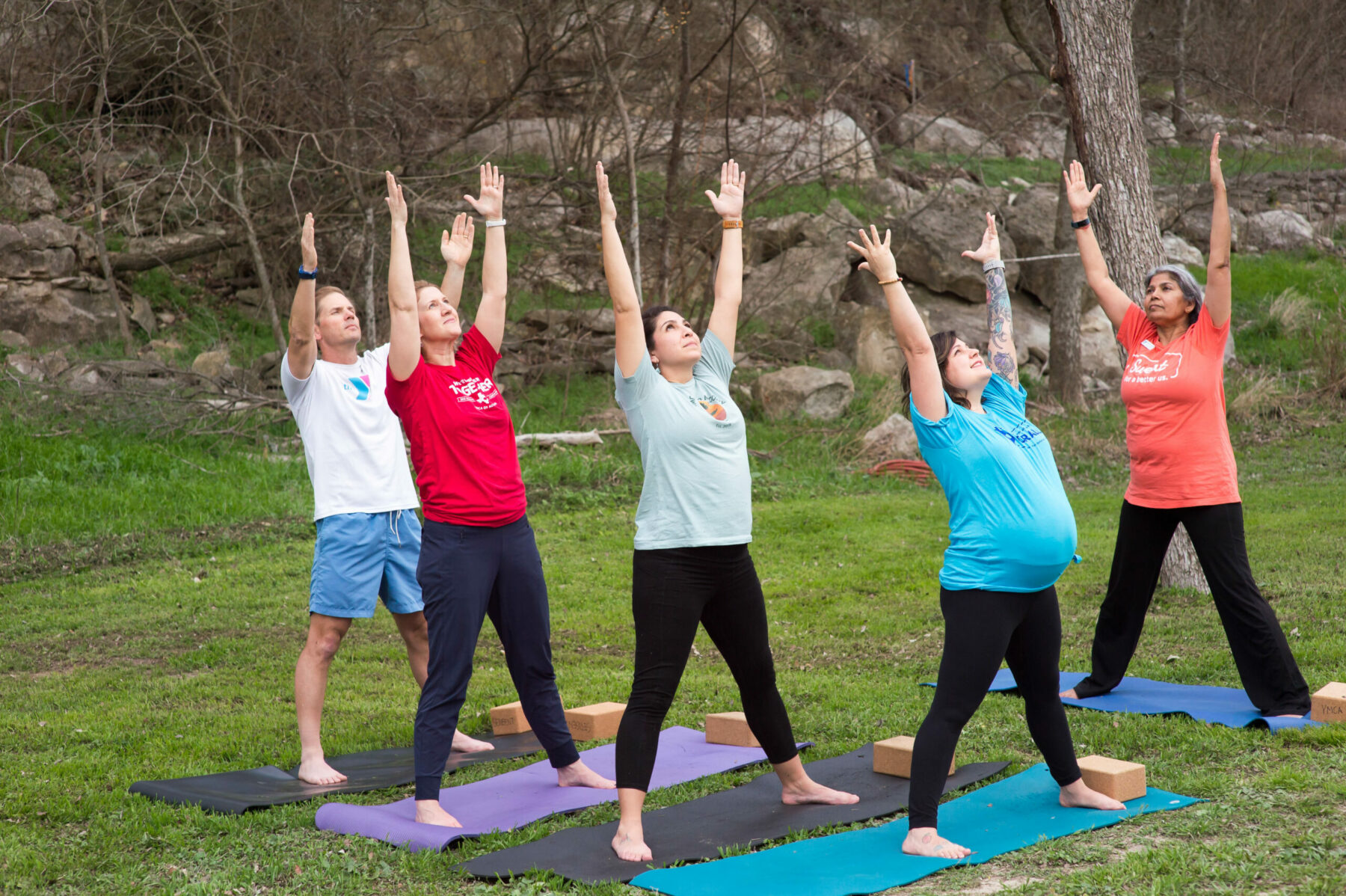Be Sure to Include Yourself During This Season of Giving

Courtesy of YMCA of Austin
Self-care is important to practice all year long. But it can be especially beneficial during the hectic holiday season.
The end of year is a popular time for people to give their time and talents to friends, family, and fellow community members. This busy season can also be a time that self-care practices take a back seat. But it doesn’t have to be that way.
What is Self-Care?
“Self-care” can take on many meanings, but these days we commonly refer to it as the practice of taking an active role in protecting our own wellbeing and happiness, in particular during periods of stress. Goodness knows, we’ve had no shortage of stress lately. According to the World Health Organization, self-care might include:
- Hygiene
- Nutrition
- Lifestyle (exercise, leisure, etc.)
- Environmental factors (social habits, etc.)
- Socioeconomic factors (income, cultural beliefs, etc.)
- Self-medication
“Self-care isn’t just a quick fix,” says Renee Deeter, Regional Health & Wellness Director for the YMCA of Austin. “It promotes your physical, emotional, mental, spiritual and social wellbeing. It takes practice, and should be integrated in your daily life.”
Some examples of self-care activities include:
- Moving your body
- Participating in a wellbeing therapy
- Practicing a restorative activity like yoga or meditation
- Immersing yourself in nature
- Making a tasty, nutritious snack or meal
- Engaging in a creative activity
- Visiting a place of worship
Self-Care All Year Long
For some of us, making time to focus on ourselves is challenging. However, there are many benefits to developing an ongoing self-care practice. One timely example is that self-care can help you to be more present, connect with others, and be better prepared to give and receive.
Deeter says that regular self-care practice can help prevent burnout, provide a sense of accomplishment, and empower you to be more in control of your health and wellbeing. She acknowledges that the “practice” is where the effort is. “Self-care isn’t something you do once and are done. It requires you to sustain a practice so that you can grow.”
How to Make Time for Self-Care
One of the biggest mistakes we often make is in viewing self-care as an all-or-nothing exercise. But the truth is, we can realize significant benefits from even the briefest, smallest acts—even in just a few minutes. In fact, you might even strive to integrate self-care throughout the day by finding moments you can be present with sensations.
“One simple idea is to create an intentional routine at a specific time, or on a certain day during the week,” Deeter says. “You can set aside time to connect with yourself and step away from the constant barrage of external feedback in today’s world.” Just like exercise, she says a consistent routine helps to make self-care practices more sustainable. Examples include:
- Creating a daily practice like prayer, meditation, mindful movement or breath work
- Practicing a regular body scan and addressing areas of concern with stretching or massage
- Keeping a journal and writing your thoughts and observations at regular intervals such as mornings, at lunch or before bed
- Cooking a favorite recipe on a Sunday afternoon or during a time when you’re not rushed
- Spending time in nature connecting to the sights and sounds, even if it’s in your back yard or on a walk around the block
- Keeping your creative spirit alive through music, writing, painting, crafting or dancing; not merely consuming art but giving yourself permission to make art as well
“Self-care shouldn’t be intimidating or be seen as a chore,” Deeter says. “It’s supposed to be something that feels good and that you can enjoy.” And although the term implies a focus on the individual, she says you don’t always have to engage in these activities alone. Some might require solitude and introspection. But others may be group or family activities. There are no absolutes.
Getting Started
The YMCA of Austin is a community resource to help you develop or deepen your self-care practice. Services include mental health counseling, health and wellbeing coaching, nutrition counseling, cooking, yoga & meditation classes, volunteer opportunities, outdoor excursions at YMCA Camp Moody and more. Find details at www.austinyca.org.






